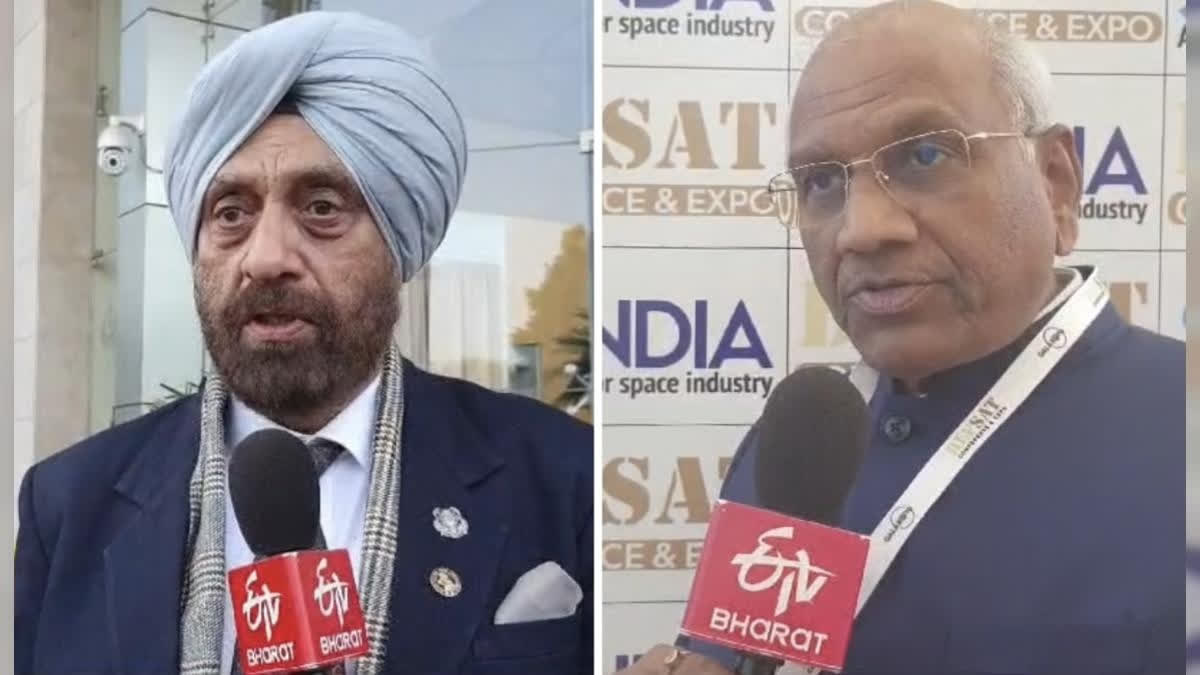By Surabhi Gupta
New Delhi: The DefSat 2025, spotlighted India's drive to integrate space and defence capabilities to address modern security challenges. This year's theme, 'Integrated Space Capabilities for Multi-Domain Operations,' brought together over 500 experts from sectors including government, defence, space, technology, and homeland security. The event highlighted the pivotal role of space technologies in reshaping warfare across land, sea, air, cyberspace, and the homeland security spectrum.
Space: The Fourth Frontier of Warfare
Former Lt. Gen (Retd) (Dr.) PJS Pannu highlighted the dual-use nature of space technology. Speaking to ETV Bharat, he described space as the "fourth frontier of warfare," explaining its critical role in modern military operations.
"Space technology, initially developed for civilian purposes, is a global commons that offers immense potential for military applications. Satellites used for Earth observation can also provide intelligence of military value," he said.
He elaborated on the three key attributes of space technology—ISR, Positioning, Navigation, and Timing (PNT), and advanced communication systems—and their applications in multi-domain operations. "The ISR capability allows us to gather intelligence, analyse it, and prepare for potential threats. PNT systems are essential for precision warfare, particularly for missile systems and hypersonics. Reliable space-based communication ensures seamless long-range connectivity, overcoming ground-level disruptions," he explained.
He also noted how advancements in civilian space technology, such as satellite-based navigation and communication systems, have created dual-use opportunities for defence. "From land and maritime warfare to air and cyber domains, space technology has become a backbone for multi-domain operations. Homeland security also greatly benefits from these advancements," he added.
